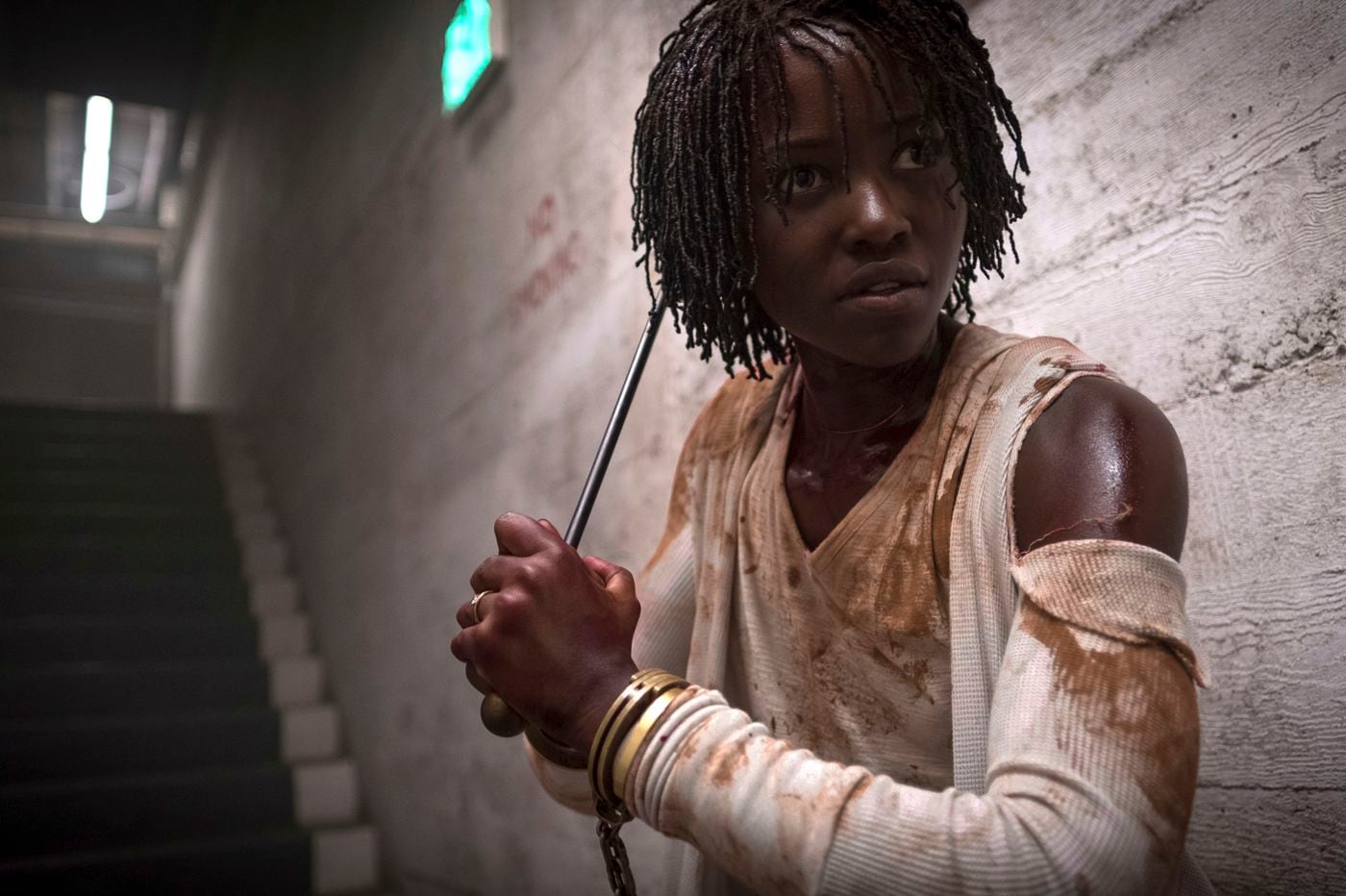Jordan Peele is a great Hollywood success story. From Mad TV to Key & Peele, he was seen as one of television's great minds. However, his most mainstream success came in the release of the social horror/thriller Get Out. The film was seen as a welcome departure from Peele's comedic stylings, and earned him an Oscar win for Best Original Screenplay. The expectations were set high for Peele's next film Us. Little was known about the film prior to release, except that it had a larger budget and starred Oscar winner Lupita Nyong'o. What Peele chose to deliver was...interesting.
Us follows a young African American family as they take a vacation to Santa Cruz. The matriarch of the family, Adelaide Thomas is a woman haunted by her PTSD. How she leads her family is directly impacted by her traumatic past. Her family is then haunted by her worst fear: a soul-less, doppelganger version of her family.
The film begins on the common intruder/slasher genre, but expands as it continues. Peele could have easily made another solid entry in the somewhat overtired genre, but chose a different path. Peele dispels rumors that all of his horror movies have to be about race by a brilliant twist in the beginning of the third act of the film. He brilliantly uses musical juxtaposition to illustrate this choice. Us plays the part of a classic horror film, but expands on issues such as women's mental health. In the Me Too movement, the trusting of women who struggle with mental health issues based on traumatic experiences has been called into question. Peele illustrates this by the total dismissal of Adelaide's experiences by her birth family, and the family she created with her charming yet blundering husband Gabe. The choice by Nyong'o to use Spasmodic Dysphonia in the voice of her doppelganger character was brilliant. The broken up speech is a sing of abuse or trauma in the past which makes the character all the more frightening while realistic. Accuraltye portraying a mental illness is forward-thinking and socially responsible film making.
Another choice Peele makes is to expand the field of play. Most horror films use the setting of the film to entrap the characters. Many of these movies take place in bad weather, at night, or in enclosed spaces to increase thew natural claustrophobia of the viewer. Hitchcock began to change this rule with films like North by Northwest. In the film, the most intense scene takes place in the day, in a wide open field to demonstrate that the character has nowhere to run. Peele understands this as Us finishes. Many of the scenes are in public in open places, yet the characters have nowhere to escape.
This is one of the smartest yet most creative films about mental health. Peele throws so many Easter eggs that there are many ways the film could be interpreted. The film leaves the viewers with more questions than answers at the end. The ending of Get Out is tied so neatly with a bow. with one of the most satisfying conclusions in recent film. In contrast, Us shows that the filmmaker knows the answers, but refuses to reveal them. However, it fits with generally uncomfortable feeling of the film.
Overall, Us is more of a conventional horror than the smart thriller of Get Out. Though it can fall into genre tropes, it is generally terrifying while being smart in its own way. The film feels less tight and neat and straightforward than Get Out, but maybe that is good in contrast. Comparing he films almost feels inevitable, as completely unfair as it is. Jordan Peele proves that he is not Hitchcock, he is not Romero, he is not Cronenberg, but he is his own brand of filmmaker, which is entirely welcome. Though it will be a long wait, I believe that Us is an Oscar caliber film grounded in Nyongo's brilliant dual performance. Hopefully high-quality horror films are more recognized for their cinematic worth.
Grade: (8.0/10)


Comments
Post a Comment